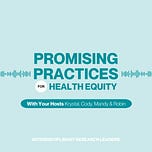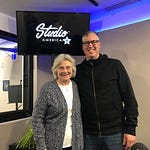Hosts: Krystal Lee, J. Robin Moon
Episode Description: To engage in the true transformation of our society, it is not enough to look at the external structural causes and conditions of our world. We must look even further and deeper into the mental landscape and models of the reality that are within us. To transform the world, we must transform ourselves (Grace Lee Boggs quoted by adrienne maree brown), and we start the journey with storytelling. In this second part of our prologue for Season One, we invited Luis Ortega, Director and Founder of Storytellers for Change, to have a conversation with us about the critical need for storytelling and narrative change in community-engaged research, and what motivated us to create this podcast.
Guest bio:
Luis Ortega (he/them), EdM, is a multidisciplinary storyteller, educator, facilitator, narrative strategist, and the founder and director at Storytellers for Change. Over the last 16 years, Luis has worked with youth, educators, and cross-sector leaders to harness the power of narrative to co-imagine, craft, and share stories to build an equitable world. His research and consulting work focuses on asset-based storytelling, racial equity, narrative change, healing, culturally responsive education, leadership, and organizational development. His work, writing, and projects have been featured at the Harvard DACA Seminar, HBO’s “Where Do You Exist?” podcast, the Kauffman Foundation’s Disruptor Speaker Series, the Seattle Design Festival, and The People’s Practice magazine. Luis is a W K. Kellogg Foundation’s Community Leadership Network Fellow, Co-Director of La Cima Bilingual Leadership Camp, and co-founder of the Expresión Storytelling Fellowship at the Latinx Education Collaborative. They also serve on the board of directors of School's Out Washington.
Luis has a BA in Political Science from the University of Washington and a Master’s in Education Leadership from the Harvard Graduate School of Education. Luis was born and raised in Tenochtitlan (Mexico City) and now lives in the unceded and ancestral lands of the Duwamish and Coast Salish people (Seattle).
Mentioned:
Thoughts? Suggestions? Email us at researchleaders@umn.edu
You can find transcripts (posted the day of the episode release) and more episode of “Promising Practices for Health Equity” at Promising Practices for Health Equity Podcast: Introduction - Interdisciplinary Research Leaders
This episode of “Promising Practices for Health Equity” was produced by Studio Americana, prepared by Cody Cotton, Mandy LaBreche, Krystal Lee, and J. Robin Moon of the Robert Wood Johnson Foundation’s Interdisciplinary Research Leader’s Podcast Team.
Please visit our website to learn more about our podcast.






Share this post